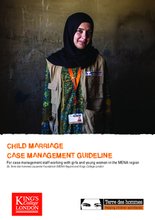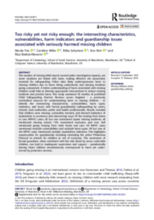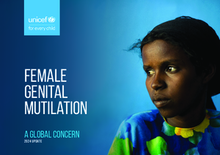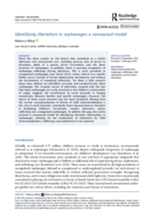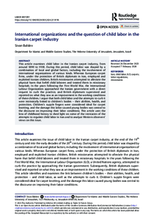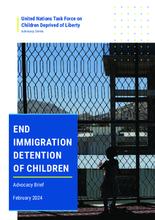Displaying 41 - 50 of 469
Muluka Anne Mitti-Drummond, UN Independent Expert on the Enjoyment of Rights of Persons living with Albinism highlights how the conversation on the enjoyment of rights of children with albinism will advance the advocacy on this topic.
This guidance aims to tailor existing case management standards and guidance to include specific elements that are relevant to child marriage cases; using the voices of Syrian refugee girls from the Terre des hommes-Lausanne Foundation (Tdh) and King’s College London (KCL) research in Lebanon and Jordan to support Child Protection and Gender-Based Violence case management staff in their case management work on the issue of child marriage.
This short paper provides an overview of the existing links between disability and trafficking in human beings, how persons living with disability are affected by trafficking, and to what extent legal standards, policy frameworks, and anti-trafficking measures integrate concerns associated with disabilities.
This study examined 18 months of published Child Safeguarding Practice Reviews across England to identify the intersecting characteristics, vulnerabilities, harm types, indicators and issues with formal guardianship (safeguarding by carers, schools, local authorities, police and health professionals). Results revealed that children were missing, vulnerable, harmed and showed indicators of exploitation in numerous and intersecting ways.
This report provides an updated data-driven assessment of female genital mutilation (FGM) around the world. It narrates through numbers the stories of millions of girls and women who have survived the practice and the millions more who remain at risk.
Around the world, millions of children are growing up in orphanages, or children's homes as they are called in many places. But research has shown that the vast majority of them, actually have families.
This article presents a conceptual model for identifying clientelist relationships in orphanages, allowing for the implications of clientelism for child institutionalisation, trafficking, and exploitation to be explored.
This article uses the lens of childhood history to shed light on some of the intricacies of the attempts to regulate child labor in Iran and to analyze Western observers’ views on this issue.
This advocacy brief provides an overview of promising practices and lessons learned to end child immigration detention in the U.S. and sets out a range of policy actions needed to scale up efforts to end this form of violence.

